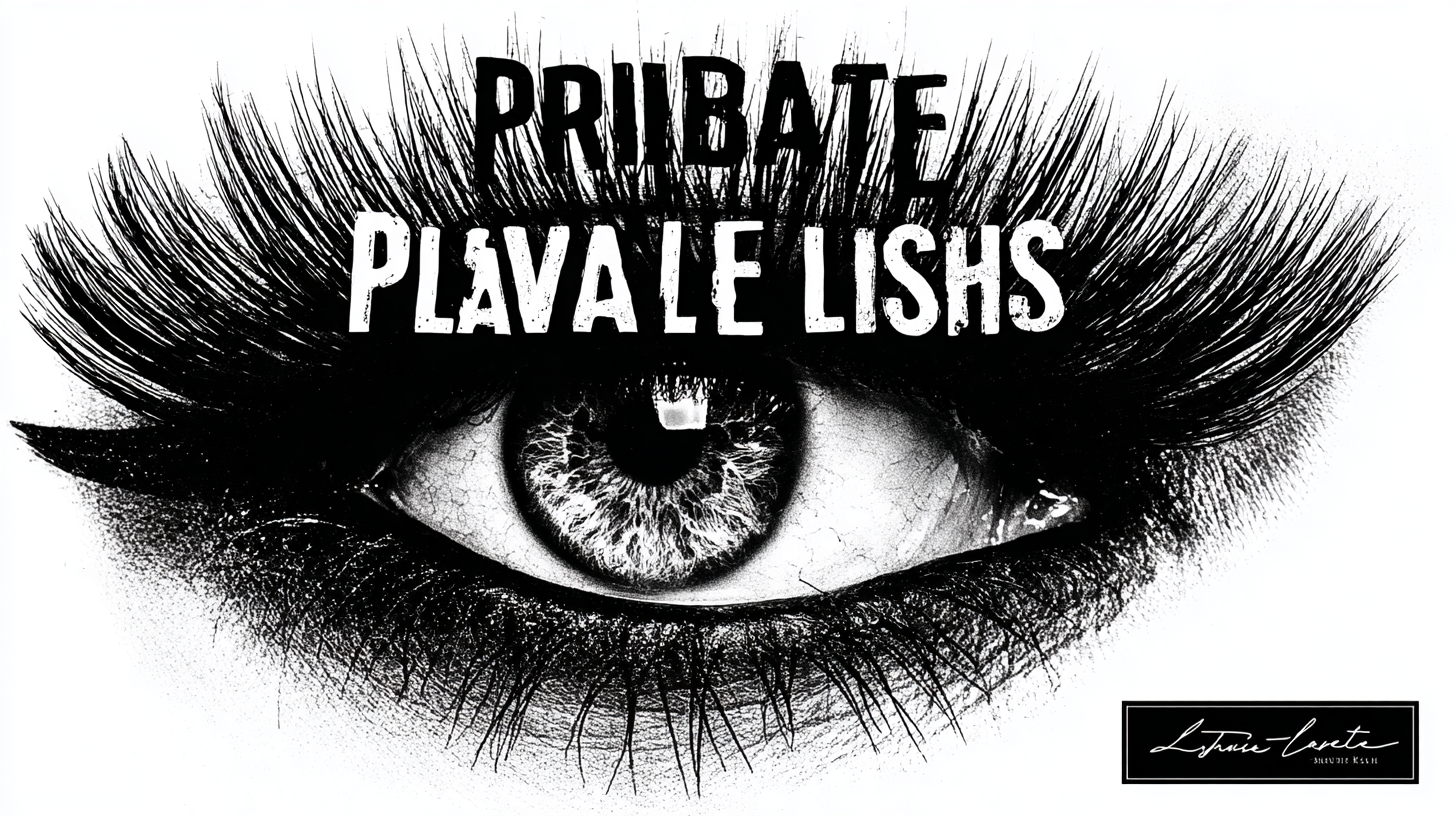How to Choose the Best Private Label Lashes for Your Business Growth
When it comes to expanding your beauty business, choosing the right products can make all the difference, particularly when it comes to Private Label Lashes. These specialized lash products not only enhance the look of your offerings but also provide an opportunity for branding and customer loyalty. Understanding the advantages of after-sales service and managing repair costs are critical factors in selecting the best private label lashes for your business growth. This blog will explore essential criteria for assessing different lash providers, highlighting examples of successful brands that have leveraged high-quality lashes to boost their market presence. With insightful guidance, you'll be better equipped to make informed decisions that align with your business goals and enhance overall customer satisfaction.

Understanding the Market Demand for Private Label Lashes in Your Region
 Understanding the regional market demand for private label lashes is crucial for business growth. The fake eyelash industry has seen a remarkable trajectory, fueled by rising consumer interest in beauty enhancement products. In particular, areas known for production, such as Pingdu in Shandong Province, dominate global supply, creating opportunities for businesses to tap into local manufacturing for competitive advantage.
Understanding the regional market demand for private label lashes is crucial for business growth. The fake eyelash industry has seen a remarkable trajectory, fueled by rising consumer interest in beauty enhancement products. In particular, areas known for production, such as Pingdu in Shandong Province, dominate global supply, creating opportunities for businesses to tap into local manufacturing for competitive advantage.
When selecting private label lashes, consider the material type. Human hair lashes often appeal to consumers seeking a natural look, while synthetic options might attract those looking for affordability and durability. Additionally, exploring distribution channels is essential. Establishing a presence in supermarkets, specialty stores, or online platforms is vital to meet diverse consumer preferences in various regions.
Tips:
Focus on understanding local trends and preferences; this can influence your product offerings significantly. Additionally, prioritize high-quality materials and innovative designs that cater to consumer demands for customization. Engaging with your audience through social media can help you stay ahead of market trends and foster brand loyalty.
Evaluating Quality: Key Features of High-Standard Private Label Lashes
When diving into the world of private label lashes, the quality of the products you offer is paramount for business growth. According to a 2021 report by Market Research Future, the global false eyelashes market is projected to reach $1.6 billion by 2025, driven by increasing consumer demand for beauty products. This surge emphasizes the need for high-standard private label lashes that not only meet aesthetic needs but also ensure durability and comfort.
Key features to evaluate when selecting private label lashes include the materials used, lash design, and production processes. High-quality lashes are often crafted from real mink or premium synthetic fibers that mimic the look and feel of natural lashes. It's also essential to assess the adhesion quality, as poor glue can lead to irritation or a disastrous application. Look for lashes that are lightweight yet robust, allowing for extended wear without compromising comfort.
Tip 1: Always request samples from potential suppliers to evaluate the feel and durability of the lashes firsthand.
Tip 2: Research and verify the manufacturing practices of your suppliers. High standards in production not only impact product quality but also enhance your brand's reputation in the competitive beauty market.
By focusing on these aspects, you can ensure that your private label lash line resonates with consumers, paving the way for sustained business growth.
Assessing Supplier Reliability: Factors to Consider When Choosing Manufacturers
Choosing the right private label lashes for your business is crucial for long-term growth, particularly in a market valued at approximately $1.5 billion and projected to reach $2.3 billion by 2025. When assessing supplier reliability, consider factors such as manufacturing quality, product range, and compliance with industry standards. Reliable suppliers not only deliver consistent product quality but also adhere to regulations set forth by organizations like the Cosmetics Ingredient Review, which evaluates the safety of cosmetics ingredients.
Tips: Always request sample products to evaluate quality firsthand. This can help you gauge the durability and appeal of the lashes among your target consumers.
Another key factor is supplier responsiveness. A delay in communication can lead to lost sales and undermined relationships with your customers. According to a recent survey, nearly 70% of businesses reported that supplier delays significantly impacted their operations. Prioritize manufacturers who are communicative and can adapt to your needs swiftly.
Tips: Establish clear communication channels and set expectations early in your partnership. This proactive approach can foster a more collaborative relationship with your suppliers.
How to Choose the Best Private Label Lashes for Your Business Growth - Assessing Supplier Reliability: Factors to Consider When Choosing Manufacturers
| Factor | Description | Rating (1-5) | Notes |
|---|---|---|---|
| Quality Assurance | Measures taken to ensure product quality, including certifications and testing processes. | 4 | Look for suppliers with ISO or similar certifications. |
| Minimum Order Quantity | The lowest amount of product you can purchase from a supplier. | 3 | Consider your budget and storage capacity. |
| Lead Time | The time it takes from placing an order to delivery. | 5 | Short lead times are critical for maintaining inventory levels. |
| Customer Support | The level of assistance provided by the supplier during and after purchase. | 4 | Responsive service can help resolve issues quickly. |
| Product Range | Variety of lash types and styles offered. | 5 | A wide range allows for better market coverage. |
| Pricing Competitiveness | How pricing compares to market rates. | 4 | Evaluate overall value rather than just the cost. |
Analyzing Cost-Effectiveness: Balancing Price and Quality in Lashes
Choosing the right private label lashes for your business is not just about aesthetics; it's crucial to analyze cost-effectiveness by balancing price and quality. The lash market is flooded with options, making it essential to understand how various factors affect both production costs and consumer satisfaction. Opting for lower-priced lashes may initially seem appealing, yet they often compromise on quality, leading to higher return rates and dissatisfied customers.
Conducting thorough research is key. Look for manufacturers that offer a range of lash materials and styles while also providing transparent pricing models. Compare samples to assess the differences in weight, comfort, and durability. This not only helps you pinpoint the best quality for your budget but also ensures that the lashes meet the standards expected by your clientele. Remember, high-quality lashes are an investment that can enhance customer loyalty, ultimately driving growth and profitability for your brand.

Marketing Strategies to Promote Your Private Label Lashes Effectively
When it comes to effectively promoting your private label lashes, implementing a well-rounded marketing strategy is crucial in boosting visibility and driving sales. The rise of social media has transformed how brands interact with their consumers, and leveraging platforms like Instagram can yield significant benefits. According to recent studies, brands that engage in interactive campaigns, such as giveaways, experience up to a
34% increase in follower growth. This viral strategy not only attracts new customers but also fosters community engagement, leading to higher retention rates and brand loyalty.
In addition to social media contests, influencer marketing remains a powerful tactic for private label lash brands. A report indicates that 61% of consumers trust influencer recommendations, which is more than traditional celebrity endorsements. By collaborating with beauty influencers, brands can reach highly targeted audiences and enhance their credibility. An integrated approach that combines eye-catching content, influencer partnerships, and strategic promotions can create a compelling narrative that resonates with potential customers, ultimately driving business growth.
